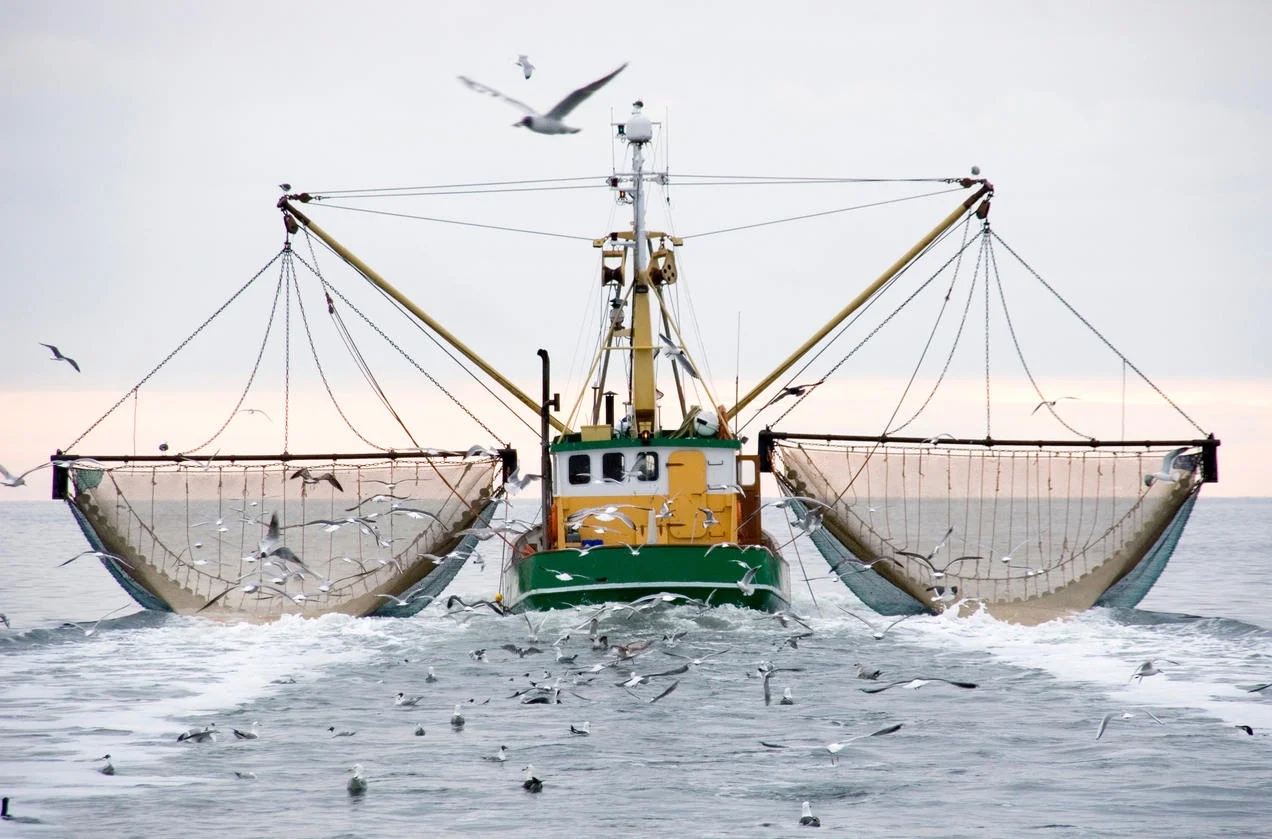Industrial fishing now occupies a third of the planet. Fishing is one of the most significant drivers of decline in ocean wildlife populations. The number of overfished stocks has tripled in the last 50 years. As of today, one third of the world’s accessed fisheries are pushed beyond their biological limit.
Overfishing is closely linked to bycatch, which is a technique of catching unwanted sea life while fishing for a different species.
Damage done by overfishing goes beyond the marine environment. People rely on fish for protein. Fish is also the principal livelihood of millions of people around the world.
How we manage and conserve our ocean resources is critical for survival of fishes.
Causes of overfishing
You can say there are many causes of overfishing. But the three most important and crucial ones are illegal fishing, overcapacity, and subsidies.
Illegal fishing and trade is one of the leading causes of overfishing. According to some estimates, illegal fishing accounts for 30% of catch of high-value species. Illegal and unregulated fishing nets criminals more than $30 billion per year.
Overcapacity is another issue. Nowadays, there are more than 4 million fishing vessels of all sizes in the ocean. Many of them have increasing capacity to catch more fish. The pressure to increase capacity of fishing vessels looms over the fishing issue. More and more traders are getting bigger boats, and fishing more and more fish. Governments fail to manage, regulate, and control fisheries and trade, especially in developing nations.
Last, but not least, subsidies, or support to the fishing industry does more harm than good. Subsidies are there to offset the costs of doing business. But they are becoming key driver and factor of overfishing. Subsidies lead to overcapacity, and they encourage more and more people to venture into the fishing business. We have limited oceans, but subsidies are pushing those limits.
The Shame List
You might be surprised, but developing countries are not the ones that rank on top of the shame list. The shame list is a list of countries that are responsible for overfishing.
In the Pacific, Japan, China, Indonesia, South Korea, And America are countries responsible for overfishing of tuna. These countries are responsible for 80% of the actual catch of bigeye tuna in the Pacific.
The Pew Charitable Trust, an independent organization, warn that if countries fail to act and implement management measures, fishing for Pacific tuna should be suspended. If not, we might wake up one day and there is no more tuna to be fished.
Why is overfishing a problem?
People often do not stress over problems that do not affect them directly. Well, overfishing threatens to affect all of us one day.
Let’s look at some of the numbers of overfishing. This will help you understand how big of an issue overfishing is:
- 52% of fish stocks are fully exploited
- 20% of fish stocks are moderately exploited
- 17% of stocks are over exploited
- 7% are completely depleted
If you look at the numbers, they show that one fourth of the world’s fish stocks are either overexploited or depleted. Half of the fish stocks, are also in danger of overexploitation. All of this leads to two serious problems that affect us.
The first one is we are losing species as well as entire ecosystems. The result is the overall ecological unity of our ocean is under stress and at a high risk of a collapse.
Another problem that might affect us more directly is the risk of losing valuable food source. Fish is a key ingredient in many cuisines. Vegetarians and vegans rely on fish as protein source. Without fish, some people will be forced to look for other food sources.
What can you do?
Mahatma Gandhi once said “Be the change you want to see in the world”. One individual cannot make much of a difference, and that is a fact. But many individuals, focused on the same idea, can make a huge difference.
Overfishing is a global problem, not a local one. What we can do locally is encourage politicians to strengthen international law. And we can make a difference by knowing what we eat.
When it comes to fish, try to focus on fish that is not in the dangerous species. Inform yourself about fish species, and try to consume more local fish.
Last, but not least, spread the word. Inform friends, family members, colleagues, and everyone else what the overfishing problem is.



